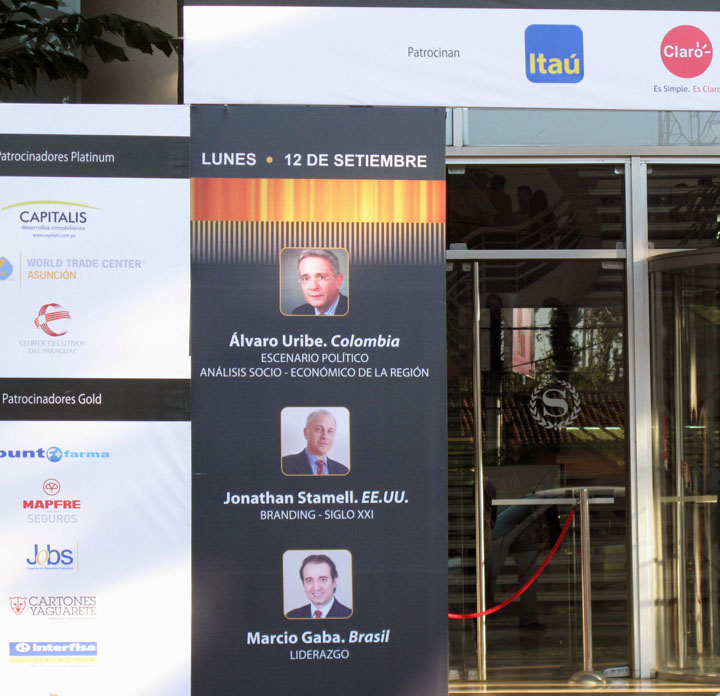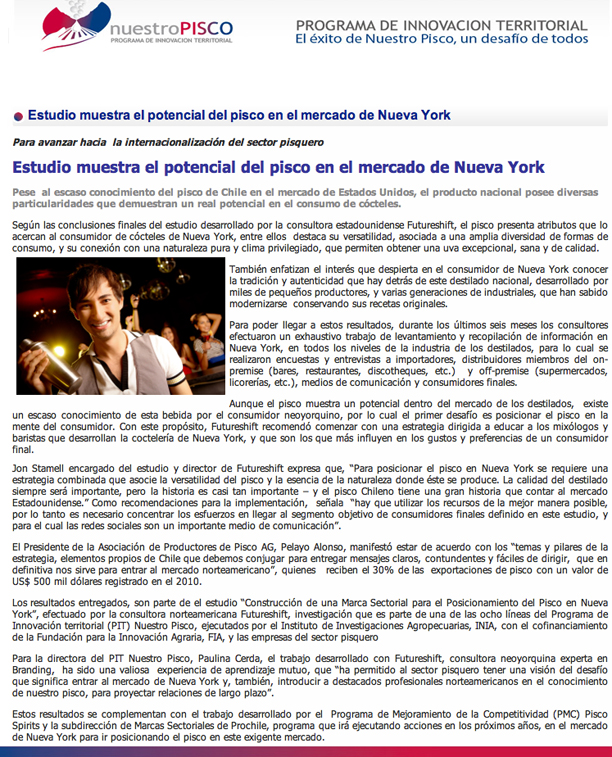It has been several days now that we watched the Vice Presidential debate and have been subjected to a discussion that’s more about whose demeanor and facial expressions have been better than about their policies.
Depending on from which side you see things, President Obama has either brought the economy back to a place where it can now recover or he’s brought us to a Leninist-Marxist precipice. Governor Romney is either the biggest liar that has ever run for president or he is just the man we need to help America get back to its revolutionary roots. It’s that extreme and it’s that myopic. We’re losing sight of the big picture.
Yesterday, I attended the annual shareholders’ conference for The Baron Funds, a group of mutual funds led by Ron Baron who believes that it’s the quality of people who make great companies and that investing in them is a long-term bet on America. The event is held each year at New York’s magnificent Lincoln Center. 4,000 shareholders attended.
During the morning, you get to listen to presentations from CEO’s of companies the funds have invested in. Then at lunch, various entertainers perform in one of the many auditoriums at the Center. Yesterday, the choices were British rock singer Joss Stone, Broadway star Kristin Chenowith, or jazz stylist Harry Connick Jr. After returning from lunch, the senior analysts from each of the Baron Funds engages in a panel discussion about the past year’s performance and how they pick stocks. When this ends, there’s a musical performance from a big name headliner. In the past, it has been people like Rod Stewart, Bon Jovi, Elton John and others who you’d pay a lot of money to see elsewhere. Yesterday, the headliner was Celine Dion – more on Celine later.
I don’t know if Ron Baron chose the CEO’s who made their morning presentations to make a point about the country’s economic stewardship. I want to believe he did. Here’s a brief encapsulation:
- David Rubenstein, Co-Founder & Co-CEO of The Carlyle Group showed a different set of values for private equity firms than we’ve seen during the past year from Governor Romney’s turn at Bain. From its start in 1987, Carlyle now manages $160 billion in investments with the goal of supporting good companies that create jobs and prosper for their shareholders AND employees. For all his success, Rubenstein exhibited an amazing self-deprecating sense of humor and stressed the importance of giving back to America. He has put his money where his mouth is by joining Warren Buffet in giving his fortune away. What came across more than anything is that good values build great companies. By the way, he said he has no problem with the regulations imposed by Dodd-Frank, which some politicians want to remove.
- Steven Spinner, CEO of United Natural Foods was a little more meat and potatoes in his presentation…well actually, more tofu and bulghur… but he expressed a need to be more conscious about our environment and both the chemicals we put into our environment and our bodies. The company is now the largest distributor in the U.S. and Canada of natural and organic foods and has become a $4.5 billion company with 65,000 sku’s and 23,000 customers. Healthy foods raise our awareness of our environment and build successful businesses – quite a contrast to the right wing preaching that the government (and in particular, Michelle Obama) is trying to force feed us healthy foods we don’t like.
- Robert Katz, CEO of Vail Resorts showed how a sizable business ($1 billion +) dependent on nature can prosper when it focuses both on good environmental stewardship and helping people enjoy all the recreational possibilities that enables. What’s interesting is that they don’t own the land their resorts sit on. They lease it from the National Forest Service, and have to work with the Service to show they are deserving of both permits and leases – a great example of how government helps improve our lives, supports business and is worth the investment we all make in it.
- Frank Coyne, CEO of Verisk Analytics is all about Big Data. This company dominates the insurance risk assessment business. I have no idea of his political leanings (or most of the others for that matter) but he’s a former Marine who grew up in a lower middle class family from Scranton, PA. There was not a trace of ego in his presentation. He is clearly an American success story who rose from the middle – no trickle down there.
- Kevin Plank, Founder and CEO of Under Armour, a $2 billion company that began in his basement in 1996, told an amazing story of how his experience as a college football player took him on a search to find better performance athletic clothing. He displayed optimism, competitiveness and personal charm in telling his success story. There was not a hint of dismay in his approach to the future.
- Rich Barton, Co-Founder & Executive Chairman of Zillow, Inc. was the moderator of the analysts’ presentation so he wasn’t really focused on his or his company’s story. However, he founded both online travel giant, Expedia, and Zillow, an online real estate search site. He’s another American success story who displayed extraordinary optimism.
The last presentation of the day came from Ron Baron, CEO of Baron Capital Group. Baron founded the funds in 1982. Today his enormous success has made him a billionaire. I’ve never met the man but in every conference I’ve attended, he always stresses his middle-class roots in New Jersey, his optimism about American business and his belief in America. He doesn’t hesitate to mix patriotism into business. As in past years, Broadway star Kelly O’Hara came out to sing America The Beautiful as everyone sang along. This year, there was an additional treat of Kristin Chenowith singing the national anthem. She raised the roof and 4,000 hearts with it. (That girl has pipes!)
Baron gave his outlook on the economy, the stock market and reminded us why a long-term investment philosophy in good people who build great companies pays off . He praised Federal Reserve Bank Chairman, Ben Bernanke for his stewardship of the economy to a smattering of applause. He showed how the stock market has climbed 60% since the days of doom and gloom four years ago to wild cheers.
Then, came the part that left me stunned. He noted that we’re soon to have an election between President Barack Obama — maybe 20% of the audience applauded — and Mitt Romney to loud, enthusiastic applause that drowned out anything that had preceded it. It left me wondering whether anybody had been paying attention all day. The contrast to private equity investing with the Romney approach from David Rubenstein ‘s Carlyle Group couldn’t have been clearer. Protection of our food sources and environment have helped businesses succeed, not fail due to over-bearing government regulation. The economy never fell off the cliff. Businesses and the stock market prospered and now they’re cheering for an uncertain change that promises to strip away a lot of the government support and regulation that has contributed to both success and fairness? I don’t get it.
I grew up in a family that was firmly Democratic, although I believe I am more fiscally conservative than my parents. While I live in New York, I continue to vote in Maine where I still own property. There, like many Mainers, I’ve settled into a mode of independence, voting for moderate Republicans like Bill Cohen and Olympia Snowe, independents like Angus King and Democrats like George Mitchell. The contrasts to me this year couldn’t be clearer. While I’ve lost some of my love for President Obama, I think he provides a healthier direction for America. We have serious problems to fix but I don’t believe those will come from cutting everything except defense and frankly, I have a problem with disingenuousness. Neither party can claim sainthood in this regard but I saw Romney claim himself as “severely conservative”, heard his campaign manager say they could just take out the “etch a sketch” and remodel him once the Republican nomination was secure and now he’s transformed himself into a moderate. It reminds me of that famous Lincoln quote: “You can fool some of the people all of the time, and all of the people some of the time but you can’t fool all of the people all of the time.”
In the end, just like Ron Baron says and practices, it’s about people and their values. Not only do good people build great companies but they also build great countries. I left the conference a little dismayed at the shareholders’ reaction to the election but still optimistic about the long-term. To that, I can thank Ron Baron for this annual event.
This brings me to Celine Dion. I’m not a fan and never have been. She’s too kitschy for me. Yes, she’s talented and a professional song stylist who’s benefited from great writers but in one song, Kristin Chenowith blew her away. After all the great rock stars I’ve seen at this event, I was surprised at her appearance. “Las Vegas East”, Ron Baron called it. It certainly was. Her big band, violins, lots of costume changes and a self-aggrandizing video were all on display. Like so many other successes — only in America.
I thought of staying for a few songs and then leaving but then I thought of my daughter. She’s a fledgling comedy writer in LA and she loves Celine. She’s dreamed of going to Las Vegas to see her and has even asked me to foot the bill for the $250 ticket. You can imagine how far that went. But as Celine came on, I texted her knowing that she would be excited. It was only the texting banter between us that kept me there for the duration.
Here it is:
So the afternoon entertainment is Celine.
SHUT UP!
Here she is:

You are breaking my heart.
HOW IS IT THAT YOU GET TO SEE CELINE DION PERFORM AND I NEVER HAVE?
Tell me everything! WHAT IS SHE WEARING? How many costome changes? How many times is she fake crying? AHHHHH
Is she amazing???? OF COURSE SHE IS!!!!
I guess because I own $30K of Baron Funds. I wish you were here. She’s too sappy for me. I don’t know how long I can last.
OMG omggggggg!!! Just revel in it.
Oh, here come all the big hits! “I’m your lady” oooh la la
OMGgggg!!!!
Imagine her an alien from a special planet where the wind is always billowing her hair and dresses!
A lot of eyebrow action and the motions. WAIT! We have violins! It’s a costume change!
AHHHHHHHH. WHAT IS THE NEW COSTUME?
This is so unfair.
We’re waiting with bated breath. Maybe she went out to pee.
Slinky, black and silver.

It’s cabaret time.
She’s magnificent!
I’ll record Titanic if she goes there.
OH SHE WILL AND YOU BETTER.
She tucks her 3 little ones into bed and there’s video to prove it.
Stop it.
I think I’m going to throw up.
Me too.
It’s “Beauty & The Beast” time.
Oh, I love that one. This is so unfair, it hurts.
I feel your pain.
It’s another costume change.
What will it be? There’s James Bond music.
Ughhhhhhhhh
No, she just went to pee. She’s singing “Goldfinger.”
A medley of 007 songs. She’s got her fist in the air. The audience is in a state of rapture.
Now, she’s patting her hip and swaying. This Québécois lady knows how to have a good time.
She sure does.
This all sounds glorious!
A little piece of heaven.
I’ve run out of responses.
I’m just really jealous.
It’s “All by myself” now. I know how she feels. Carla left to go to a meeting. So sad.
Double fist pounding on her chest. Serious stuff.
Now, she’s singing “Spinning Wheel”. Am I back in college?
Costume change!

This is amazing. Never forget how amazing she is.
Elvis is in the building!
Here we go: I’m sinking. There’s an iceberg and the ship is going down. I’m recording this.

It’s over. I’m exhausted.
Holy crap! Me too.
The Baron Funds Annual Conference is one of my favorite days of the year. I am reminded of why I am in business and what I tell my clients through my consulting business. I’m entertained in this incredible city and my belief in America is always restored. This year, it also provided some fun with my daughter. Is there anything better?
Tags: 007, America the beautiful, American success stories, Americans, Assumptions, Baron Funds, Beauty & The Beast, Ben Bernanke, Big Data, Bill Cohen, Bon Jovi, Broadway, Celine, Celine Dion, CEO, Change, Chile, Corporate Myopia, Crazy people, Customers, David Rubenstein, Democrats, Democrats and business, Dodd-Frank, Dreams, Elton John, Elvis, Etch a Sketch, Events, Expedia, Federal Reserve, Frank Coyne, futureshift, George Mitchell, Goldfinger, Governments, Harry Connick Jr., James Bond, Joss Stone, Kelly O'Hara, Kevin Plank, Kitsch, Kristin Chenowith, Las Vegas, Las Vegas East, Leadership, Lincoln, Lincoln Center, Maine, Mainers, Marine, Marketing, Michelle Obama, Mistakes, Mitt Romney, National anthem, National Forest Service, Olympia Snowe, Organic foods, Outcomes, PA, Paul Ryan, President Obama, Quebecois, Regulation, Republicans, Republicans and business, Rich Barton, Robert Katz, Rod Stewart, Ron Baron, Scranton, Shareholders, Situation Analysis, Spinning Wheel, Steven Spinner, Stock Market, The Carlyle Group, Titanic, U.S. Marketplace, Under Armour, United Natural Foods, Vail, Vail Resorts, Verisk Analytics, Vice Presidential Debate, Winning, Zillow























